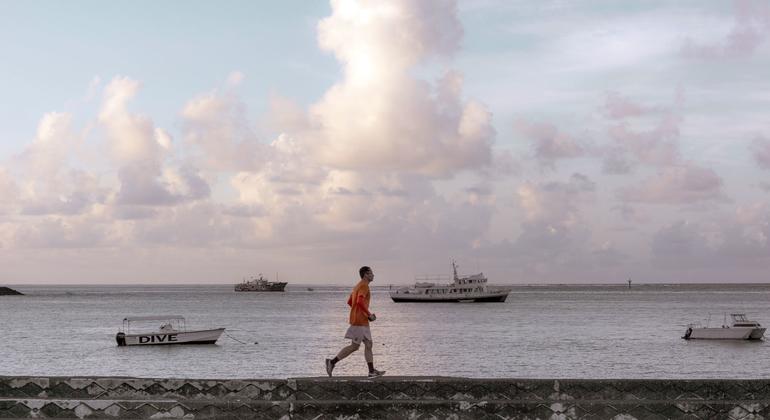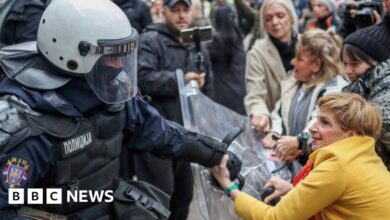UN Secretary-General calls for climate justice for Pacific nations affected by rising sea levels


Speaking in Samoa, where he met people displaced by rising sea levels and coastal erosion, Mr Guterres said Pacific islanders had refused to be victims of climate change. But he stressed that their ambitious plans to combat “an existential threat to millions of people” had been put on hold amid a lack of promised funding.
“We are fighting hard for climate justice…[but] we don’t see the amount needed and that is why we are asking for reforms and international financial institutions to meet the funding needs of countries, like the Pacific countries,” the UN chief told journalists at the UN Building in Apia, the capital.
More than words
Mr. Guterres stressed that positive gestures from rich countries towards developing countries are not enough to compensate for economic shocks caused by natural disasters caused by climate change, pointing out that Loss and damage fundagreed in 2022 at the United Nations Climate Change Conference (COP27) in Egypt.
Developed countries have also pledged to double climate adaptation funding by 2021 from the $100 billion a year agreed in 2009, the secretary-general said, noting that this potentially game-changing revenue source has not yet received enough support.
“We need all countries to honour their promises on climate finance and achieve strong financial outcomes from this year’s COP, where we will discuss post-2025 financial commitments,” he said.
The sea wall is under siege
Speaking to reporters, the UN chief described how Samoans have repeatedly responded to climate shocks, including a deadly 2009 tsunami that killed at least 192 people.
“We saw people moving inland. We saw people persevering to come back and rebuild. We saw a tremendous determination by people to fight not only the impact of the tsunami, but also the impact of rising sea levels and of storms and cyclones,” he said.
“I saw a wall that protected a village from the sea; that wall for 20 years, because of tsunamis – because of rising sea levels and because of big storms – has been built three times“ .
Financial inequality
Many developing countries like Samoa, which are also on the front lines of the climate crisis, have to rely on international lenders at higher interest rates than the world’s poorest countries, effectively cutting them off from the capital they need to save themselves.
To address this historic structural inequality in international finance, the United Nations has partnered with Small Island Developing States (SIDS) on a new measure of national income – the Multidimensional Vulnerability Index (MVI) – so that they too can access the significant funding needed for sustainable development.
“We ask the international community to act in such a way that when international financial institutions deal with countries like Samoa, the Multidimensional Vulnerability Index is taken into account to allow concessional financing for necessary projects for this country to achieve Sustainable Development Goals and protect people from climate change,” said Mr. Guterres.
Provide solutions
The Secretary-General also reiterated his desire for small island states like Samoa to access some $80 billion in development-related funding. Special Drawing Rightsmay be redirected by members of the International Monetary Fund (International Monetary Fund) for multilateral development banks to borrow.
New sources of income like this are vital for countries like Samoa, which have lost important tourism revenue because of COVID-19 pandemic and “has not received the support of the international community,” Mr. Guterres continued. “When we look at Samoa, we understand what that means and we never stop fighting to make sure that this is recognized by the international community.”




